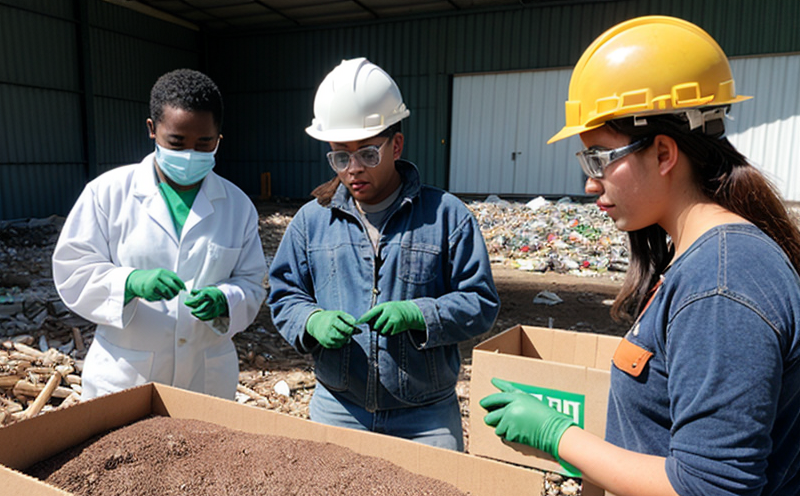ISO 14040 Life Cycle Assessment for Toy Materials
The ISO 14040 standard outlines the framework and principles of life cycle assessment (LCA) to help organizations understand, quantify, and communicate the environmental impacts associated with products throughout their lifecycle. In the context of toy manufacturing, this service ensures that toys are designed, manufactured, and distributed in a manner that minimizes adverse environmental effects.
Life Cycle Assessment is a comprehensive approach used by industries worldwide to evaluate the environmental impact of various activities. For toys, it involves understanding how materials are sourced, processed, used, and ultimately discarded. By conducting an LCA according to ISO 14040 guidelines, manufacturers can identify key areas where improvements can be made in terms of sustainability.
Our team of experts uses advanced analytical tools and methodologies to perform these assessments. We ensure that all tests comply with the stringent requirements set by international standards like ISO 14040, ensuring accuracy and reliability. This service is particularly valuable for companies looking to enhance their reputation through sustainable practices or those seeking compliance with regulatory requirements.
The process begins with a detailed review of the toy's lifecycle stages, including raw material extraction, manufacturing processes, distribution channels, usage patterns, end-of-life disposal options, and recycling possibilities. Each stage is evaluated for its environmental impact using quantitative data collected from reliable sources.
Our team then translates these findings into actionable insights that can guide product development towards more environmentally friendly designs. This includes recommending changes in material selection, process optimizations, packaging redesigns, and disposal methods aimed at reducing waste generation and resource consumption.
To further enhance the sustainability of toys, we offer additional services such as recycled material testing which ensures compliance with relevant standards like ASTM D6400 for biodegradable plastics. These tests help verify whether materials used in toy production meet stringent criteria regarding their ability to decompose safely without harming soil or water systems.
By partnering with us, you gain access not only to cutting-edge testing capabilities but also expert guidance on leveraging lifecycle assessment results to drive innovation within your organization’s product lines. Our goal is to empower businesses across various sectors including toy manufacturing to make informed decisions about sustainability practices that contribute positively towards global environmental goals.
Scope and Methodology
| Aspect of Lifecycle | Description |
|---|---|
| Raw Material Extraction | Evaluation of environmental impacts from sourcing raw materials. |
| Manufacturing Processes | Analysis of energy usage, water consumption, and emissions during production. |
| Distribution Channels | Assessment of transportation modes and associated carbon footprints. |
| Usage Patterns | Simulation of typical consumer behavior regarding toy usage over time. |
| End-of-Life Disposal Options | Evaluation of various disposal methods and their respective environmental impacts. |
Environmental and Sustainability Contributions
- Identification of high-impact areas in toy production processes.
- Recommendations for reducing waste generation during manufacturing.
- Evaluation of alternative materials with lower environmental footprints.
- Demonstration of compliance with stringent international standards like ISO 14040.
- Promotion of circular economy principles through optimized recycling processes.
Competitive Advantage and Market Impact
By integrating ISO 14040 Life Cycle Assessment into your product development strategy, you position yourself as a leader in sustainable manufacturing practices. This approach not only enhances brand reputation but also fosters customer loyalty among environmentally conscious consumers.
The findings from our detailed assessments can be leveraged to create marketing campaigns highlighting the eco-friendliness of your products. Such initiatives often result in increased sales and market share, especially within segments focused on green consumerism.
Moreover, adherence to stringent environmental standards such as ISO 14040 provides peace of mind knowing that your company adheres to global best practices. This can open doors for international markets where regulatory compliance is crucial for entry into specific countries or regions.





